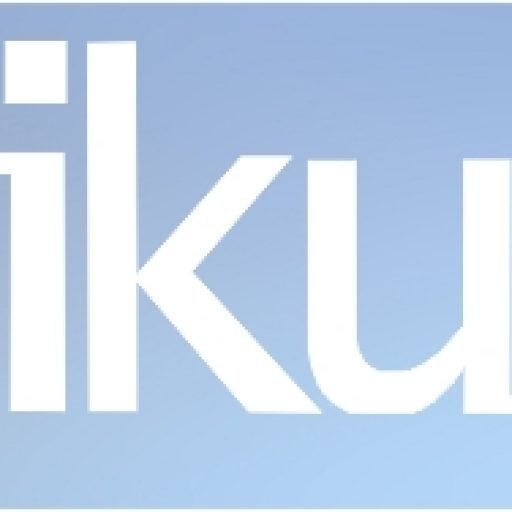 Kanser Tedavisinde Yeni Advers Olay: ‘Finansal Toksisite’ (İng)
Kanser Tedavisinde Yeni Advers Olay: ‘Finansal Toksisite’ (İng)
New Adverse Event in Cancer Treatment: ‘Financial Toxicity’
Nick Mulcahy – Apr 25, 2013
Every day, oncologists listen to patient complaints about the adverse effects of cancer treatment, such as fatigue, nausea, and pain. Clinicians also regularly hear about out-of-pocket costs that negatively affect patients’ lives, say a pair of essayists.
These cost complaints, which are becoming more common, warrant a new term in cancer care — “financial toxicity,” according to S. Yousuf Zafar, MD, and Amy Abernethy, MD, from the Duke Cancer Institute in Durham, North Carolina.
“Out-of-pocket expenses related to treatment are akin to physical toxicity, in that costs can diminish quality of life and impede delivery of the highest quality care,” the pair write their 2-part essay, published online February 15 and April 15 in Oncology.
Out-of-pocket expenses related to treatment are akin to physical toxicity.
Financial toxicity is both an objective financial burden (how much a patient pays and owes) and subjective financial distress (how much the pocketbook crunch effects well-being).
It is clear that patients are now paying more for treatment, note Drs. Zafar and Abernethy.
Cancer treatments are more expensive than in the past, and they are being overused; importantly, rising costs are being passed on to the patient, the essayists write.
First, there is the cost of insurance itself. The cost of private insurance (“premiums”) rose by 170% from 1999 to 2011 — far outpacing the average increase in wages. Also, prescription drug copayments have radically changed, with an innovation called tiered formularies that pass on more of the cost of the drug to more plan members. From 2000 to 2012, the proportion of workers whose drug plan had 3 tiers increased from 27% to 63%, the essayists report, citing other research.
For cancer patients, the most common high out-of-pocket expenses are for drugs, followed by outpatient care and hospitalization, they note.
Indebtedness is common and can be severe. In a recent study of colorectal cancer patients, researchers found that about 25% were in debt because of treatment, and that the average debt was $26,860 (J Clin Oncol. 2011;29:954-956).
What happens when a patient can no longer afford their treatment? the essayists ask.
They stop obtaining and taking their drugs, among other things. Drs. Zafar and Abernethy cite a study of breast cancer patients in which nonadherence to aromatase inhibitors was associated with higher copayments for the drugs (J Clin Oncol. 2011;29:2534-2542). The cost effect also spirals outward into individuals’ lives. Dr. Zafar headed a recent survey of cancer patients who had applied for copayment assistance (because of financial hardship), despite having health insurance (Oncologist. Published online February 26, 2013). The researchers found that these patients were “spending their savings, canceling vacations, and working more hours to afford their cancer care.”
The subjective ways in which the high cost of cancer care affect patients’ lives are not extensively studied, the essayists admit. But, in one study of cancer patients, 19% believed that the cost of treating their disease caused their family a large amount of distress (J Oncol Pract. 2010;6:69-73).
What to Do?
The first step in discussing cancer costs is actually knowing the cost of treatment, say Drs. Zafar and Abernethy.
Change is afoot in this regard, noted Nancy Keating, MD, MPH, from the Dana-Farber Cancer Institute and Harvard Medical School in Boston, Massachusetts, who was not involved with the study.
Massachusetts passed legislation last summer that requires healthcare price transparency within 5 years, Dr. Keating told Medscape Medical News in an email. Currently, “physicians have no idea how much services cost,” she explained.
“Price transparency (for patients and physicians) has great potential to improve the way that we deliver care,” Dr. Keating noted. She cited a hospital study that showed that when house officers are given information about the cost of blood tests, they order fewer routine blood tests.
In the meantime, the problem of financial toxicity puts clinicians in a difficult situation, say Drs. Zafar and Abernethy. “We find ourselves at the front lines of the conflict between cost and effectiveness, and frankly, we are unprepared,” they write.
Patients want to discuss treatment costs, the essayists note. For example, one study in general medicine indicated that 63% of patients wanted to discuss costs with their physician (JAMA. 2003;290:953-958). But other research suggests a “conundrum”: patients want to talk about cost, but they don’t want their physicians making treatment decisions based on cost.
The essayists point out that, for some patients, treatment decisions based on cost happen anyway, when a lack of money results in nonadherence to drugs, avoidance of recommended procedures, and skipping doctor’s appointments.
To identify these patients early on, Drs. Zafar and Abernethy recommend that clinicians capture financial toxicity like they capture treatment-related toxicity: through the use of real-time, electronic patient-reported outcomes (ePROs) data collected in the clinic.
“Through the use of ePROs, patients could be screened for financial distress — along with fatigue, weight loss, and nausea — at each visit, allowing for longitudinal evaluation and timely intervention,” the essayists write.
However, the problem of financial toxicity transcends individual patients. It is societal and needs to be addressed and mitigated by government and institutions, the essayists argue. Among other things, cost needs to be integrated into practice guidelines, they say. To that end, the American Society of Clinical Oncology has formed a working group to assess the inclusion of cost and cost-effectiveness data in their clinical practice guidelines.
Dr. Zafar has disclosed no relevant financial relationships. Dr. Abernethy reports serving as a consultant to Pfizer; receiving research support from Biovex, Dara Pharmaceuticals, Helsinn, MiCo, and Pfizer; and serving on the board of directors of Advoset and Orange Leaf Associates, LLC.
Oncology (Williston Park). Published online February 15, 2013. Full text
Oncology (Williston Park). Published online April 15, 2013. Full text
Medscape Medical News © 2013 WebMD, LLC
